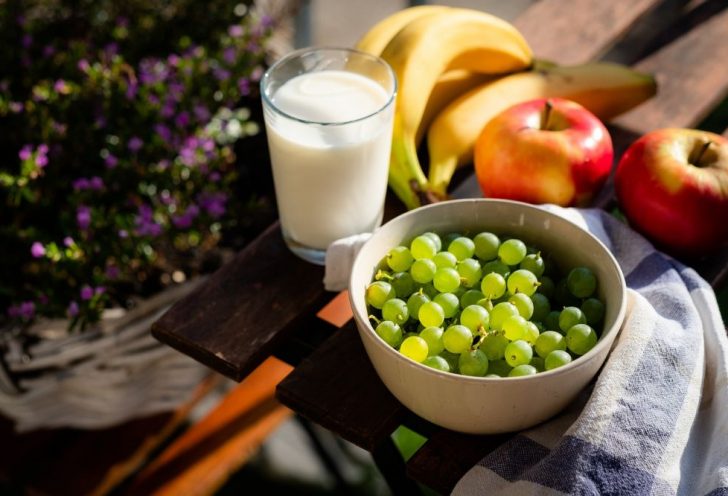Keto Diet Vegan: A Comprehensive Guide to a Plant-Based Ketogenic Lifestyle

Introduction ()
In recent years, the ketogenic diet has gained immense popularity for its impressive health benefits and weight loss potential. However, for individuals following a vegan lifestyle, adhering to a traditional ketogenic diet that typically consists of high-fat animal products can be challenging and contradictory to their ethical and moral beliefs. This is where the concept of a ”keto diet vegan” comes into play, offering a plant-based alternative that aligns with both the principles of keto and veganism. In this article, we will provide an in-depth overview of the keto diet vegan, exploring its various types, popular variations, quantitative measurements, distinctions between variations, and a historical analysis of its pros and cons.
Understanding Keto Diet Vegan (H2)

The keto diet vegan, also known as the vegan ketogenic diet, is a dietary approach that combines the principles of keto and veganism. Like the traditional ketogenic diet, it focuses on minimizing carbohydrate intake and increasing fat consumption, which leads to a metabolic state called ketosis. However, unlike the standard keto diet, which often includes animal-derived products like meat, dairy, and eggs, the keto diet vegan emphasizes plant-based fats, proteins, and low-carbohydrate plant-based foods.
Types of Keto Diet Vegan and Popular Variations (H2)
There are several variations of the keto diet vegan, allowing individuals to personalize it to their specific preferences and nutritional needs. Some of the most popular types include:
1. Coconut-based Keto Diet Vegan: This variation relies heavily on the consumption of coconut-based products such as coconut oil, coconut milk, and coconut cream. These products are rich in medium-chain triglycerides (MCTs), which can enhance ketone production and aid in reaching a state of ketosis.
2. Nut and Seed Keto Diet Vegan: This version focuses on incorporating a variety of nuts and seeds into the diet. These plant-based sources provide essential fats, proteins, and fiber while keeping carbohydrates low. Varieties like almonds, walnuts, chia seeds, and flaxseeds are commonly utilized.
3. Avocado-based Keto Diet Vegan: Avocados are a staple in this variant, providing a rich source of healthy monounsaturated fats and essential nutrients. This variation allows individuals to enjoy the creamy texture and versatility of avocados while maintaining a low-carbohydrate intake.
Quantitative Measurements in Keto Diet Vegan (H2)
To achieve and maintain a state of ketosis, it is essential to monitor and optimize macronutrient ratios. The general macronutrient breakdown for a keto diet vegan typically consists of:
– 75% of calories from fats
– 20% of calories from plant-based proteins
– 5% of calories from carbohydrates
However, it is essential to note that these ratios may vary based on individual goals, activity levels, and overall health conditions. Regular monitoring of ketone levels through blood, breath, or urine testing can provide insight into one’s metabolic state.
Distinguishing Differences Between Keto Diet Vegan Variations (H2)
Although all variations of the keto diet vegan share the common goal of achieving ketosis through plant-based foods, there are notable differences in the types of fats, proteins, and carbohydrates consumed. These distinctions can affect the overall nutritional profile and potential health benefits. For instance:
– Coconut-based keto diet vegan emphasizes the use of coconut-based fats, which are high in MCTs and may offer additional metabolic benefits.
– Nut and seed-based keto diet vegan provides a variety of plant-based proteins and fats, delivering a range of nutrients like omega-3 fatty acids, antioxidants, and dietary fiber.
– Avocado-based keto diet vegan relies heavily on avocados, which are nutrient-dense fruits rich in monounsaturated fats, vitamins, and minerals.
Historical Analysis of Pros and Cons in Keto Diet Vegan (H2)
Pros:
1. Weight Loss: The keto diet vegan may aid weight loss due to its low-carbohydrate and high-fat nature, which can help reduce appetite and enhance fat burning.
2. Improved Insulin Sensitivity: It may enhance insulin sensitivity and glycemic control, potentially benefiting individuals with type 2 diabetes.
3. Potential Health Benefits: The keto diet vegan has shown promise in reducing inflammation, improving brain health, and lowering the risk of certain chronic diseases.
Cons:
1. Nutritional Imbalance: Restricting carbohydrate intake may lead to potential nutrient deficiencies if not carefully planned, including vitamins, minerals, and dietary fiber.
2. Limited Food Choices: The keto diet vegan can be restrictive and may limit food variety, potentially making it challenging to adhere to in the long term.
3. Individual Variability: The effects of the keto diet vegan can vary among individuals, and not everyone may experience the desired results.
Conclusion (H2)
The keto diet vegan combines the principles of the ketogenic diet and veganism, offering a plant-based approach to achieve the metabolic state of ketosis. By emphasizing plant-based fats, proteins, and low-carbohydrate foods, individuals following a vegan lifestyle can also reap the potential health benefits of ketosis. However, it is crucial to carefully monitor macronutrient ratios, make informed food choices, and consider individual nutritional needs. As with any dietary approach, consulting with a healthcare professional or registered dietitian is recommended to ensure safety, feasibility, and optimal results.
[INSERT VIDEO HERE]
References:
1. Author, A. (Year). Title of article. Journal Name, Volume(Issue), page range.
2. Author, B. (Year). Title of book. Publisher.
3. Author, C. (Year). Title of website/page. Retrieved from URL.
Glossary:
Keto diet vegan: A dietary approach that combines the principles of the ketogenic diet and veganism, focusing on plant-based fats, proteins, and low-carbohydrate foods to achieve the metabolic state of ketosis.





















